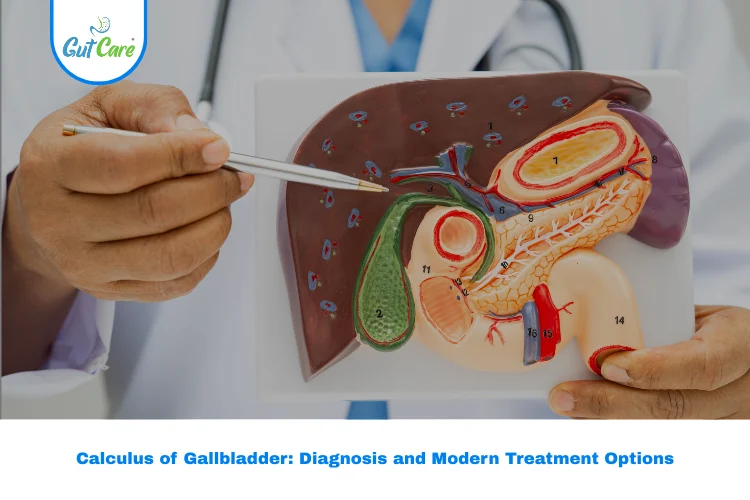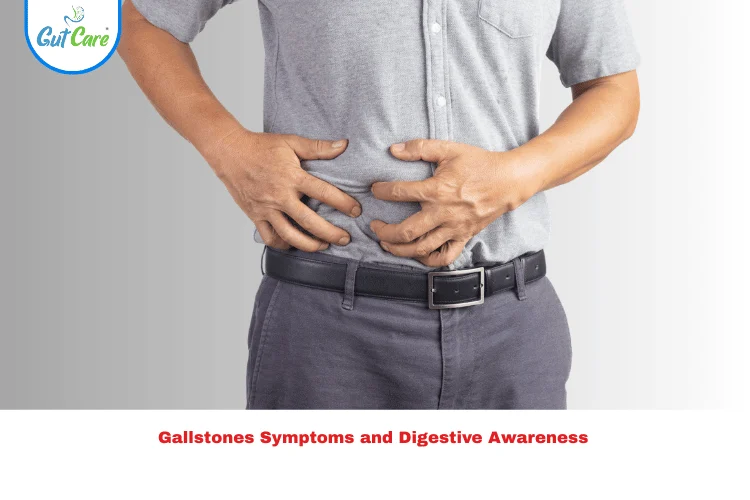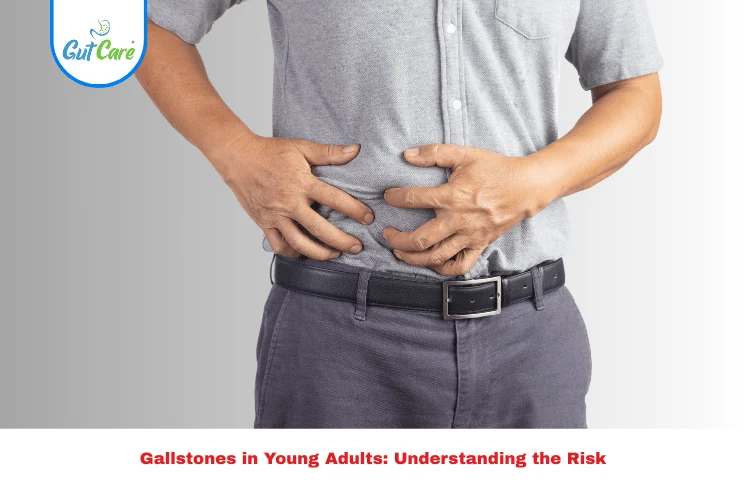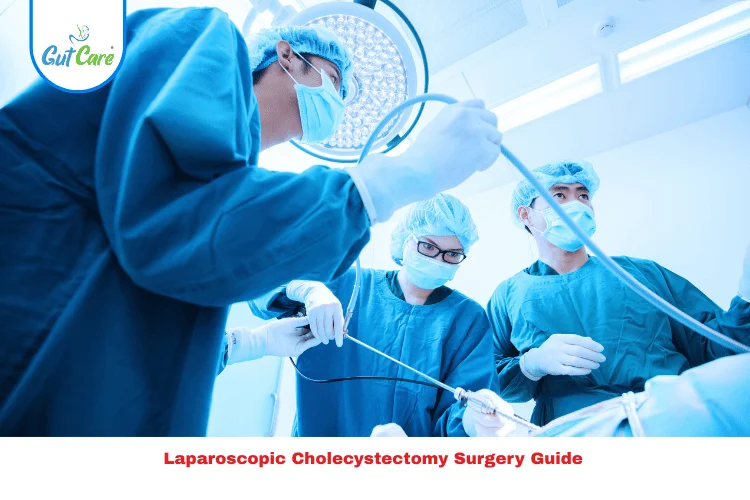The Calculus of Gallbladder, also known as gallstones or cholelithiasis, is a common digestive disorder that affects millions of people worldwide. The gallbladder is a small organ that plays a big role in fat digestion, but when stones form inside it, they can lead to severe discomfort and complications. Recognizing cholelithiasis symptoms early and seeking timely medical care is essential. At Gutcare Clinics in Bangalore, Dr. Yuvrajsingh Gehlot, an experienced colorectal surgeon, offers advanced diagnostic tools and modern treatments for gallstones, ensuring patients receive safe and effective care.
What is Gallbladder and Why is it Important?
Before diving into the condition, it’s important to understand what is gallbladder. The gallbladder is a small, pear-shaped sac located beneath the liver. Its job is to store bile a fluid that helps break down fats during digestion.
When there is an imbalance in bile composition, cholesterol, or salts, stones can form. This is known as Calculus of Gallbladder, and it can remain silent for years or suddenly trigger painful attacks.
Causes of Calculus of Gallbladder
Gallstones usually form due to a combination of factors. Common causes include:
- Excess cholesterol in bile leading to crystallization.
- Poor gallbladder emptying which allows bile to stagnate.
- High levels of bilirubin due to liver disease or infections.
- Unhealthy diet rich in fats and low in fiber.
- Obesity, diabetes, or rapid weight loss.
- Family history of gallstones.
These factors increase the risk of developing cholelithiasis symptoms, especially after fatty meals.
Diagnosis of Calculus of Gallbladder
Accurate diagnosis ensures effective treatment. At Gutcare Clinics, specialists like Dr. Yuvrajsingh Gehlot use advanced tools to detect gallstones:
- Ultrasound scan – first-line test to confirm gallstones.
- CT scan or MRI – used for complex cases and complications.
- Blood tests – to check for infection, liver function, and bile obstruction.
Early detection allows doctors to plan timely and safe cholelithiasis treatment.
Cholelithiasis Symptoms
The calculus of gallbladder often goes unnoticed until stones block the bile ducts. Some patients remain asymptomatic, while others experience:
- Biliary colic – sudden, sharp pain in the upper right abdomen, often after eating.
- Nausea and vomiting.
- Indigestion, bloating, or discomfort after fatty foods.
- Pain radiating to the back or right shoulder.
- Fever, chills, or jaundice in advanced cases.
If you notice these cholelithiasis symptoms, consult a doctor promptly, as untreated gallstones can lead to life-threatening complications like acute cholecystitis or pancreatitis.
Gallstones Treatment Options
Not every patient with calculus of gallbladder needs surgery. Treatment depends on the severity of symptoms, size of stones, and overall health.
1. Gallstones Treatment Without Surgery
- Medications: In some cases, oral bile acids (ursodeoxycholic acid) can dissolve small stones, though it may take months or years.
- Dietary changes: Low-fat, high-fiber diets reduce symptoms but do not eliminate stones.
- Shock wave therapy (lithotripsy): Rarely used, this method breaks stones into smaller pieces.
These options work only in selected cases and may not prevent recurrence.
2. Surgical Treatments (Cholecystectomy)
- Laparoscopic surgery: The gold standard treatment for gallstones. It’s minimally invasive, with small incisions, faster recovery, and fewer complications.
- Open surgery: Reserved for complicated cases where laparoscopic removal isn’t possible.
At Gutcare Clinics, modern laparoscopic techniques allow patients to recover quickly with minimal discomfort.
Modern Treatments for Gallstones
With medical advancements, modern treatments for gallstones have become safer and more effective:
- Daycare laparoscopic surgery: Patients are discharged within 24 hours.
- Enhanced recovery protocols: Focused on early mobilization and quick healing.
- High-definition imaging: Ensures precision during surgery and reduces risks.
These modern approaches make cholelithiasis treatment efficient and patient-friendly.
Why Consulting a Specialist is Crucial
Delaying treatment for calculus of gallbladder can result in repeated biliary colic, infections, and severe complications. Consulting a trusted surgeon ensures peace of mind. At Gutcare Clinics, Dr. Yuvrajsingh Gehlot combines expertise in colorectal and digestive surgery with patient-focused care, offering the most suitable treatment based on individual needs.
Conclusion
The calculus of gallbladder is a common yet serious condition if ignored. By understanding what is gallbladder, recognizing early cholelithiasis symptoms, and exploring effective cholelithiasis treatment, patients can avoid severe complications. Modern surgical options, especially laparoscopic techniques, have transformed gallstone care, offering quick recovery and long-term relief.
If you or a loved one experience gallstone-related discomfort, seek professional advice immediately. At Gutcare Clinics in Bangalore, expert care ensures safe and effective management of gallstones. Don’t wait early treatment means a healthier, pain-free future.
FAQs
1. What is calculus of gallbladder?
Calculus of gallbladder, also called cholelithiasis, is the formation of hard stones inside the gallbladder due to imbalances in bile.
2. What are common cholelithiasis symptoms?
Typical symptoms include biliary colic, nausea, bloating, pain in the upper right abdomen, and in severe cases, fever or jaundice.
3. Is gallstones treatment without surgery possible?
Yes, small gallstones can sometimes be treated with medications or shockwave therapy, but surgery remains the most effective solution.
4. What is the most effective cholelithiasis treatment?
Laparoscopic cholecystectomy is the most reliable and widely recommended treatment, offering quick recovery and minimal scarring.
5. Why choose Gutcare Clinics in Bangalore for gallstones treatment?
Gutcare Clinics, led by Dr. Yuvrajsingh Gehlot, provides advanced diagnosis and modern treatments for calculus of gallbladder with safe, patient-centered care.




